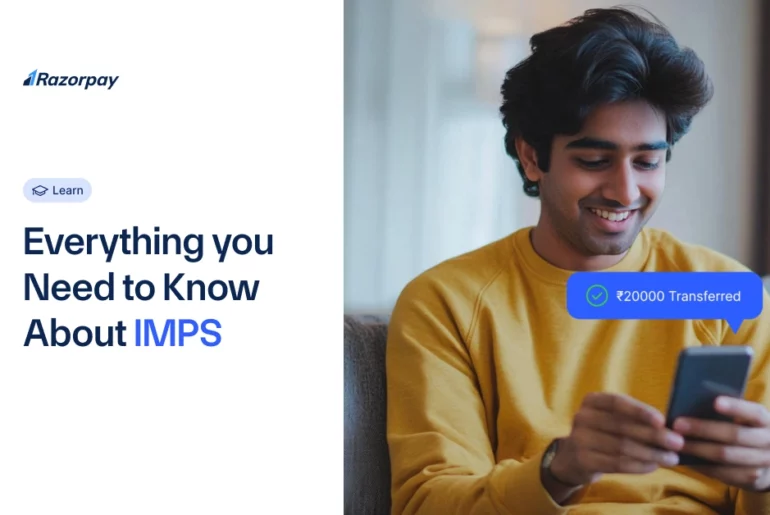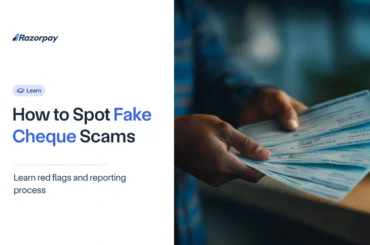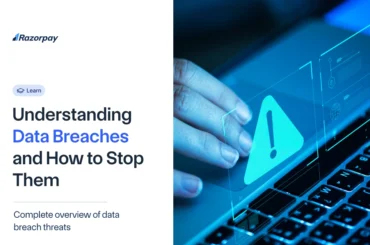IMPS offers round-the-clock, real-time fund transfers, providing an ideal solution for those seeking instant and secure transactions. Introduced over a decade ago, IMPS in banking paved the way for modern digital payment systems like UPI, enhancing the efficiency and interoperability of banking services. This article delves into the meaning of IMPS, its working and its key benefits.
Table of Contents
What is IMPS?
The full form of IMPS is Immediate Payment Service. It is an electronic funds transfer system in India, enabling instant, real-time bank transfers 24/7, throughout the year. Managed by the National Payments Corporation of India (NPCI), IMPS facilitates seamless transfers for a wide range of transactions, from person-to-person to merchant payments, through platforms such as mobile banking apps, internet banking, and ATMs. With secure linking to bank accounts via mobile numbers or Aadhaar, IMPS provides a convenient, accessible, and reliable payment solution for users across the country.
Types of IMPS Transfers
IMPS in banking can be classified into two primary categories:
IMPS via Mobile Number and MMID
This method allows you to transfer money using the beneficiary’s mobile number and their Mobile Money Identifier (MMID), a seven-digit code associated with a specific mobile number. To complete the transfer, both you and the recipient must have registered your mobile numbers with your respective banks. You can request your bank to provide your MMID, while the beneficiary can obtain theirs from their bank and share it with you.
IMPS via Account Number and IFSC
Alternatively, you can send money using the beneficiary’s bank account number along with the Indian Financial System Code (IFSC). This approach is suitable if the beneficiary has not registered their mobile number with their bank. Ensure to have the correct bank name and branch details to facilitate a smooth transaction.
This classification helps users choose the most convenient method for their IMPS transactions based on their and their beneficiary’s banking details.
Key Features and Benefits of IMPS Payments
IMPS (Immediate Payment Service) is one of the most reliable and efficient ways to transfer money digitally in India. Here’s why it stands out:
Instant Transfers, Anytime
IMPS lets you send money instantly, 24/7—including weekends and bank holidays. The amount is credited to the recipient’s account in real-time, unlike NEFT or RTGS, which may have delays.
Safe and Secure Transactions
Each IMPS transaction is protected through OTP verification and encrypted channels, ensuring your money reaches the right person without any risk.
Available Across Platforms
You can use IMPS through mobile apps, internet banking, or even ATMs, making it convenient and accessible wherever you are.
Multiple Payment Options
IMPS supports transfers using mobile number & MMID, Aadhaar number, or even account details—so you don’t always need to enter full bank info.
Real-Time Alerts
Both sender and receiver get instant notifications when the transaction is successful, helping you track payments easily.
Related Read: What is the Difference Between NEFT, RTGS, And IMPS
IMPS Limit Per Day
The daily threshold for IMPS transactions in India stands at ₹5 lakh. Individuals can transfer this amount using internet banking, mobile banking or via their account number. Adhering to this information is crucial for the business’s steady financial process.
Initially, the Reserve Bank of India restricted the IMPS limit per day to ₹2 lakh. However, considering the increasing demand for this payment system, the RBI increased the daily limit for IMPS to ₹5 lakh to meet the growing demand of users and businesses.
IMPS Transaction Charges
The following are the charges applicable for outward IMPS, excluding applicable Goods and Service Tax (GST):
- For IMPS transactions ranging from ₹0 to ₹1,000, the charges are ₹3.50 plus applicable GST.
- For IMPS transactions between ₹1,001 and ₹1,00,000, the fee is ₹5 plus applicable GST.
- For IMPS transactions exceeding ₹100,000, the charges are ₹15 plus applicable GST.
IMPS Transfer Time
IMPS (Immediate Payment Service) operates 24/7, throughout the year, allowing account holders of any bank to make transactions at any time. Once the sender’s bank approves the transaction, funds are transferred instantly to the beneficiary’s account.
However, in rare cases where a transaction may fail, become void, or time out, the resolution process can take up to 5 working days. This ensures that any issues are addressed and funds are appropriately handled. Overall, IMPS provides a reliable and efficient method for instant money transfers.
How to Register for IMPS in 2025?
To register for IMPS, follow these steps:
- Register using the mobile banking service provided by the bank.
- Ensure having the bank’s Mobile Money Identifier (MMID) and mobile banking personal identification number (MPIN). For a successful transaction, ensure that the recipient and the beneficiary have them.
- Download a banking mobile application from the bank to utilise the SMS facility if the bank has an SMS IMPS facility.
What is IMPS P2A Transfer?
IMPS P2A (Person-to-Account) transfer lets you send money instantly to a recipient’s bank account using their account number and IFSC code. It’s a secure, real-time method that works 24/7, making it suitable for urgent and routine payments alike.
What is IMPS P2P Transfer?
IMPS P2P (Person-to-Person) transfer allows real-time fund transfer using the beneficiary’s mobile number and MMID (Mobile Money Identifier). It’s ideal when you don’t have their account details. Just like P2A, P2P is instant, secure, and available round the clock.
How to Transfer Money Via IMPS?
IMPS (Immediate Payment Service) offers multiple methods for transferring money quickly and conveniently. Here’s how you can use IMPS through various platforms:
1. IMPS Via Mobile Banking or Net Banking
- Log In: Access your bank’s mobile banking app or website.
- Navigate to Fund Transfer: Find the “Fund Transfer” section or a similar option.
- Select Transfer Method: Choose the type of IMPS transfer you wish to make, either to a beneficiary’s MMID or bank account number.
- Enter Beneficiary Details: Input the beneficiary’s MMID or account number.
- Specify Amount: Enter the amount you want to transfer.
- Authenticate the Transaction: Use your MPIN or transaction password to confirm the transfer.
2. Via ATMs
- Visit an ATM: Go to your bank’s ATM and select the IMPS fund transfer option displayed on the screen.
- Input Beneficiary Information: Enter the beneficiary’s mobile number and MMID, along with the amount to be transferred.
- Complete Authentication: Confirm the transaction using your debit card and ATM PIN.
3. Via SMS
- Send Money via Text: Some banks allow you to transfer money via SMS. Write a text message following the specific format provided by your bank.
- Send to the Designated Number: Include the beneficiary’s MMID in the message and send it to the designated number specified by your bank.
Read More About: How to Transfer Money Using IMPS?
How Does IMPS Work?
IMPS (Immediate Payment Service) in banking facilitates real-time interbank electronic transfers in India.
Here’s an overview of its functioning:
1. Infrastructure
- NPCI: The National Payments Corporation of India (NPCI) serves as the central hub for IMPS transactions, ensuring smooth operations through a robust infrastructure.
- IMPS Switch: A secure channel that enables banks to connect and transfer funds and transaction data quickly.
- Message Broker: A routing system that directs information among various participants in the IMPS ecosystem.
- Directory Services: A centralized database that records all participating banks and their technical configurations.
2. Communication Protocol
- FIBOS: The Financial Industry Business Messaging Scheme (FIBOS) is the standardized messaging format ensuring secure communication between banks and NPCI, including sender information, beneficiary data, transaction amount, and authentication details.
3. Transfer Process
- Initiation: The sender initiates the transfer via their bank’s mobile app, portal, or ATM, confirming credentials through MPIN/OTP.
- Message Transmission: The IMPS Switch securely sends transfer information to the NPCI.
- Routing and Validation: NPCI uses directory services to route the message to the beneficiary’s bank while validating account details and balances.
- Authorization: Upon successful routing, NPCI sends an authorization message to the sender’s bank to proceed with the transfer.
- Funds Debit: The sender’s account is debited, and the bank updates its records.
- Clearing and Settlement: NPCI facilitates the clearing and settlement process, debiting the sender’s account with the RBI and crediting the recipient’s bank.
- Crediting Beneficiary: The beneficiary bank receives a credit message and promptly credits the recipient’s account.
- Confirmation: Both the sender and the beneficiary receive confirmation messages of the successful transfer.
4. Security Measures
- Encryption: IMPS employs secure protocols like SSL and TLS to ensure confidentiality and integrity during data transmission.
- Two-Factor Authentication: Additional credentials, such as MPIN or OTP, are required for transactions, enhancing account security.
- Message Authentication: Digital signatures or Message Authentication Codes ensure message integrity and prevent tampering.
Important Factors to Consider for IMPS
Users must properly understand the IMPS meaning in banking before initiating a payment. Along with meaning, also consider these factors while making IMPS transactions:
1. Mobile Banking Access
To use IMPS from mobile banking, users must have mobile banking access. IMPS can be conducted using mobile banking, which allows one to make transactions quickly and conveniently.
2. Irreversible Errors
The IMPS does not allow to reverse a successful transaction. So, it is essential to double-check all the information provided to prevent losses and ensure accuracy in the transaction.
3. Reliable Internet Connection
A fast and stable internet connection is required to complete the online money transfer with IMPS, preventing any disruptions during the transaction process.
IMPS Participating Banks
Here’s a comprehensive list of the 56 banks currently participating in the IMPS network (as of April 29, 2024)
Sr. No. |
Bank Name |
Using Mobile No. & MMID (P2P) |
Using Account No. & IFS Code (P2A) |
Internet |
Branch |
Mobile |
ATM |
| 1 | Airtel Payments Bank Ltd. | – | Yes | – | – | Yes | – |
| 2 | Axis Bank | Yes | Yes | Yes | – | Yes | – |
| 3 | Bandhan Bank limited | Yes | Yes | Yes | Yes | Yes | – |
| 4 | Bank of America | – | Yes | – | – | – | – |
| 5 | Bank of Bahrain and Kuwait B.S.C | – | Yes | – | – | Yes | – |
| 6 | Bank of Baroda | Yes | Yes | Yes | Yes | Yes | – |
| 7 | Bank of India | Yes | Yes | Yes | Yes | Yes | – |
| 8 | Bank of Maharashtra | Yes | Yes | Yes | – | Yes | – |
| 9 | Barclays Bank | – | Yes | Yes | – | – | – |
| 10 | BNP Paribas | Yes | Yes | – | – | Yes | – |
| 11 | Canara Bank | Yes | Yes | Yes | – | Yes | Yes |
| 12 | Catholic Syrian Bank | Yes | Yes | Yes | – | Yes | – |
| 13 | Central Bank of India | Yes | Yes | Yes | Yes | Yes | – |
| 14 | Citi Bank | Yes | Yes | Yes | – | Yes | Yes |
| 15 | City Union Bank | – | Yes | Yes | – | Yes | – |
| 16 | Credit Agricole Corporate & Investment Bank | – | Yes | Yes | – | – | – |
| 17 | DCB Bank Ltd. | Yes | Yes | Yes | Yes | Yes | – |
| 18 | Development Bank of Singapore | Yes | Yes | – | – | Yes | – |
| 19 | Dhanalakshmi Bank | Yes | Yes | Yes | – | Yes | – |
| 20 | Emirates NBD Bank (P J S C) | – | Yes | – | Yes | – | – |
| 21 | Federal Bank | Yes | Yes | Yes | – | Yes | – |
| 22 | Fino Payments Bank | – | Yes | – | Yes | Yes | – |
| 23 | HDFC Bank | Yes | Yes | Yes | – | Yes | – |
| 24 | HSBC Bank | Yes | Yes | Yes | – | Yes | – |
| 25 | ICICI Bank | Yes | Yes | Yes | – | Yes | – |
| 26 | IDBI Bank | Yes | Yes | Yes | Yes | Yes | – |
| 27 | IDFC bank | – | Yes | Yes | – | – | – |
| 28 | India Post Payments bank Limited | – | Yes | – | Yes | Yes | – |
| 29 | Indian Bank | Yes | Yes | Yes | – | Yes | – |
| 30 | Indian Overseas Bank | Yes | Yes | Yes | – | Yes | – |
| 31 | Indusind Bank | Yes | Yes | Yes | Yes | Yes | Yes |
| 32 | Jammu And Kashmir Bank | Yes | Yes | Yes | – | Yes | – |
| 33 | JIO Payments Bank | Yes | Yes | – | Yes | – | – |
| 34 | Karnataka Bank | Yes | Yes | Yes | Yes | Yes | – |
| 35 | Karur Vysya Bank | Yes | Yes | Yes | – | Yes | – |
| 36 | Khardah Cooperative Bank Ltd | Yes | Yes | – | Yes | Yes | – |
| 37 | Kotak Mahindra Bank | Yes | Yes | Yes | – | Yes | Yes |
| 38 | NSDL PAYMENTS BANK LTD | – | Yes | – | – | Yes | – |
| 39 | Paytm Payments Bank | – | Yes | – | – | Yes | – |
| 40 | Punjab and Sind Bank | Yes | Yes | – | – | Yes | – |
| 41 | Punjab National Bank | Yes | Yes | Yes | Yes | Yes | Yes |
| 42 | RAMRAJYA SAHAKARI BANK LTD | Yes | Yes | – | Yes | – | – |
| 43 | Ratnakar Bank | – | Yes | Yes | – | Yes | – |
| 44 | SBM BANK (INDIA) LIMITED | – | Yes | Yes | – | – | – |
| 45 | Shinhan Bank | – | Yes | Yes | – | – | – |
| 46 | South Indian Bank | Yes | Yes | Yes | – | Yes | – |
| 47 | SRI SATYA SAI NAGRIK SAHAKARI BANK, MYDT | Yes | Yes | – | Yes | – | – |
| 48 | Standard Chartered Bank | Yes | Yes | Yes | – | Yes | – |
| 49 | State Bank of India | Yes | Yes | Yes | Yes | Yes | – |
| 50 | Tamilnaad Mercantile Bank | Yes | Yes | – | – | Yes | Yes |
| 51 | The Goa Urban Co-Operative Bank Ltd. | Yes | Yes | – | Yes | Yes | – |
| 52 | The Rayat Sevak Co-Operative Bank Limited | Yes | Yes | – | Yes | Yes | – |
| 53 | TIRUMALA CO-OPERATIVE URBAN BANK LTD | Yes | Yes | – | Yes | – | – |
| 54 | UCO Bank | Yes | Yes | Yes | – | Yes | – |
| 55 | Union Bank Of India | Yes | Yes | Yes | Yes | Yes | Yes |
| 56 | Yes Bank Ltd | Yes | Yes | Yes | – | Yes | – |
These banks facilitate IMPS transactions, providing users with a convenient and immediate means of transferring funds securely through mobile devices.
Related Read: What are Payment Banks? Features & List of Payments Banks
Transfer Limit and Restrictions: IMPS Vs. RTGS Vs. NEFT
Compared to RTGS and NEFT, IMPS offers restrictions considering the needs of an average consumer looking to make generic payments.
Have a look at the table below to compare the differences between the three:
Particulars |
RTGS |
NEFT |
IMPS |
| Minimum Transaction Amount | ₹2 lakh | ₹1 | ₹1 |
| Maximum Transaction Amount |
|
|
|
As you can see, while RTGS and NEFT may have higher upper limits, IMPS will most likely serve consumers looking to meet their daily transaction needs. The low minimum transaction amount means users can use this system to pay bills at local Kirana (if the vendor allows), shop through apps on mobile phones, or send money to the family.
Of course, NEFT and RTGS may be the way to go for sending exorbitant amounts of money. The downside will be the time constraints one must operate within.
Related Reads: What is the Difference Between IMPS and NEFT Fund Transfer?
IMPS Compared to Other Payment Options
Here’s a quick look at how IMPS stacks up against other common digital payment systems in India:
Feature |
IMPS |
NEFT |
RTGS |
UPI |
| Transfer Speed | Instant | Within 2 hours (approx) | Real-time for high-value transfers | Instant |
| Availability | 24/7, all days | Only during banking hours | Limited to banking hours | 24/7, all days |
| Transaction Limit | Up to ₹5 lakh per transfer | Up to ₹10 lakh (bank-based) | ₹2 lakh minimum, up to ₹10 lakh | Bank-specific |
| Transfer Charges | Nominal fees (₹5–₹15) | Generally low | Generally low | Mostly free or minimal |
Conclusion
We hope this article has helped in understanding what IMPS is in bank. IMPS has changed consumer behaviour and expectations and paved the way for newer forms of instant payment systems to operate in India. The fact that consumers can use this system without needing a smartphone adds to its financial inclusivity, making it a great payment option for the masses!
Frequently Asked Questions (FAQs):
1. What is the IMPS full form in banking?
The full form of IMPS in banking is Immediate Payment Service.
2. What does IMPS P2P mean?
IMPS P2P stands for Immediate Payment Service Person-to-Person. It refers to a method of transferring money directly between individuals using the IMPS platform. This allows users to send funds instantly to another person’s bank account using their mobile number, MMID, or account details, facilitating quick and convenient transactions without the need for cash or checks.
3. Is a bank account required for a client to use IMPS?
Yes, the customer needs to have a bank account with a bank that has enabled the IMPS facility.
4. Does IMPS offer the facility to stop payments on IMPS?
No, it does not let you stop a payment after initiating the payment request since IMPS is an immediate fund transfer service.
5. Where can I file IMPS-related complaints?
You can file complaints for IMPS transactions with the NPCI using their website.
6. What will happen if I send money to the wrong bank account?
In the case of an intra-bank transaction, the bank will directly contact the incorrect recipient and request a reversal. However, if the transfer was made to a different bank, your bank will assist you by providing the necessary information about the incorrect recipient’s bank and branch.
7. What happens if an IMPS transaction runs out or fails?
If an IMPS transaction fails and the customer’s account is debited but the beneficiary’s account is not credited, an automatic reversal should be initiated within one day after the transaction date.
8. Is IMPS transfer free?
IMPS transfers are not entirely cost-free. A few banks, such as SBI, do not charge any costs for such transfers. However, the fee for IMPS transfers varies depending on the amount transferred.
9. Which bank is best for IMPS?
Top banks like ICICI Bank, HDFC Bank, and SBI are reliable choices for IMPS due to their comprehensive coverage and user-friendly services.
10. What information do I need to provide to send money via IMPS?
You’ll need the recipient’s mobile number and MMID to make a successful IMPS payment. Alternatively, you can also transfer money using a bank account and IFSC code.
11. Can I use IMPS to transfer funds internationally?
No, IMPS is strictly for domestic transfers within India. Consider SWIFT transfers for overseas transactions.
12. How can I check the status of an IMPS transaction?
Use your bank’s online portal or mobile app to track real-time IMPS transactions.
13. Can I set up recurring payments using IMPS?
Yes, you can easily set up regular payments for bills or subscriptions through IMPS.





